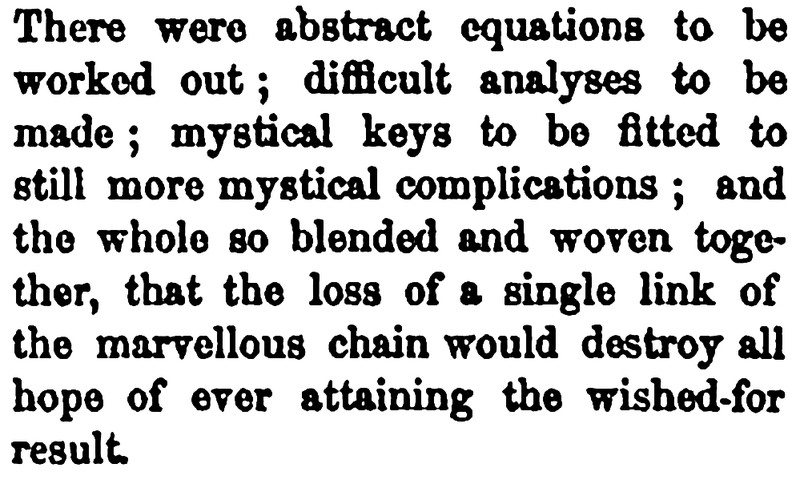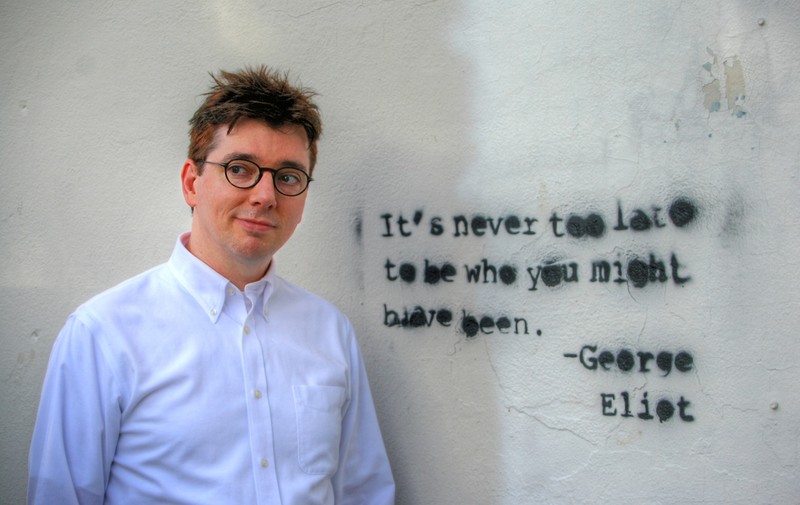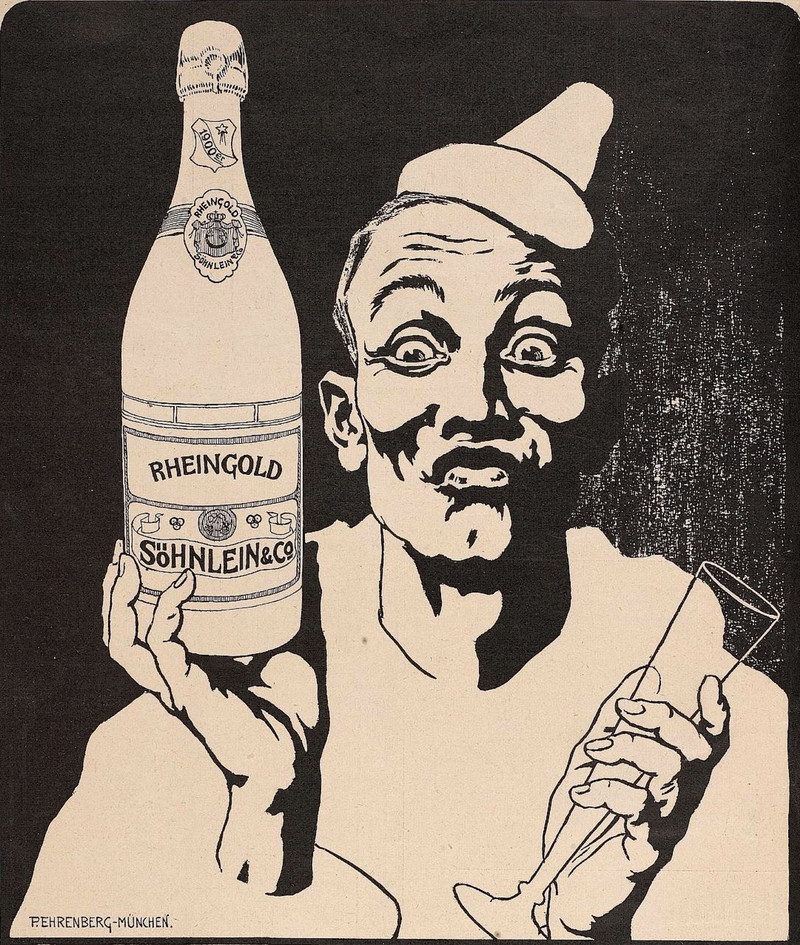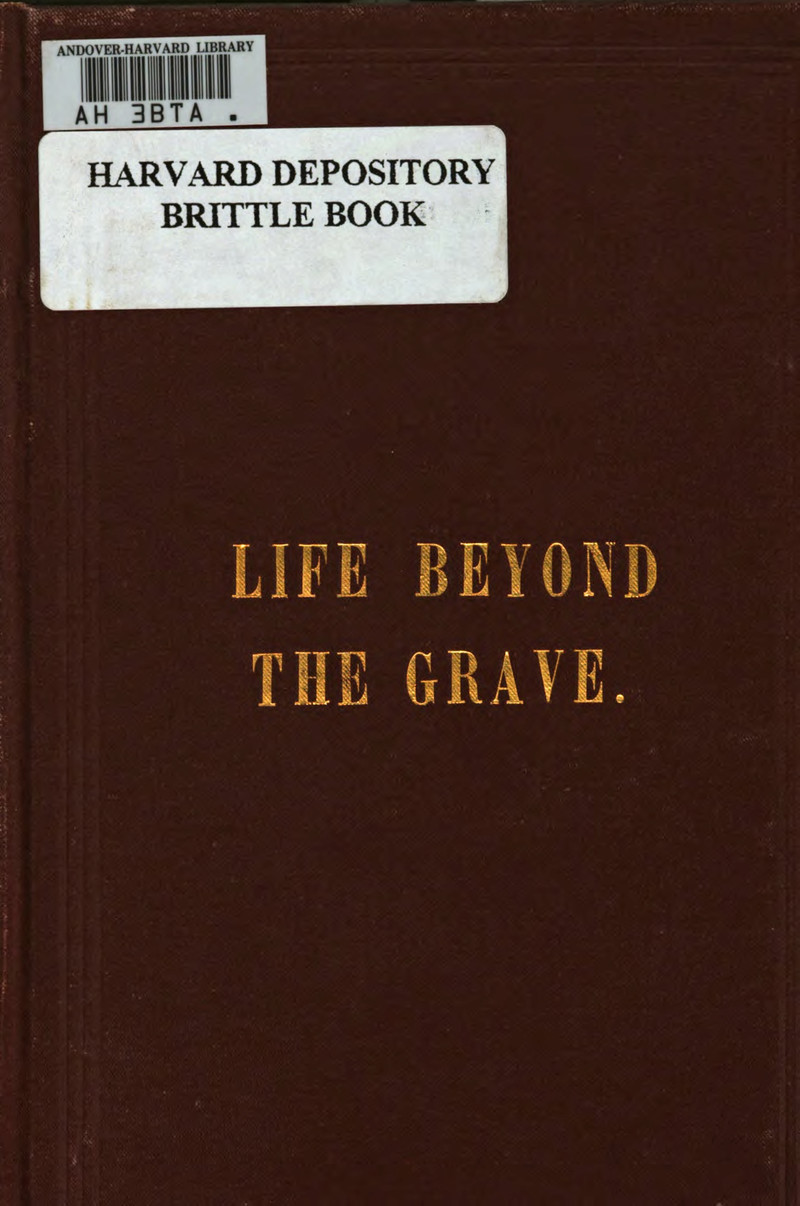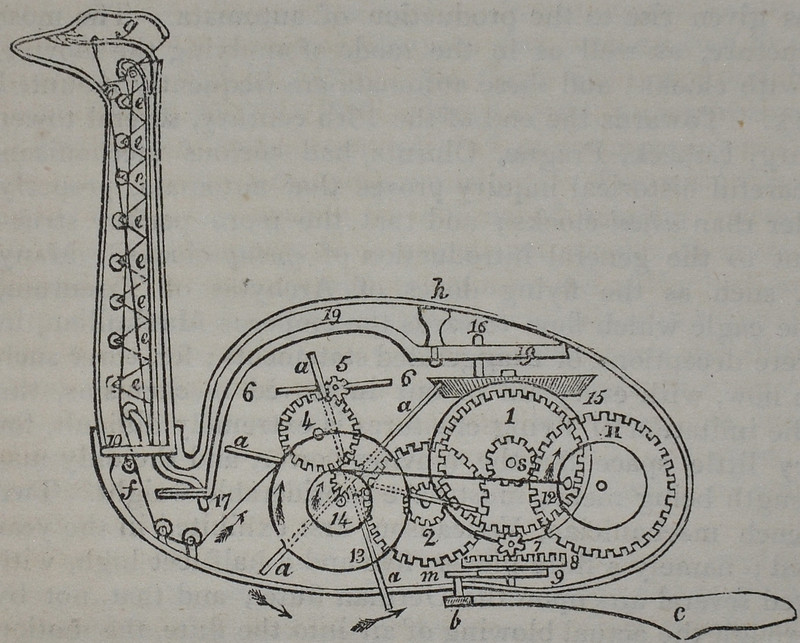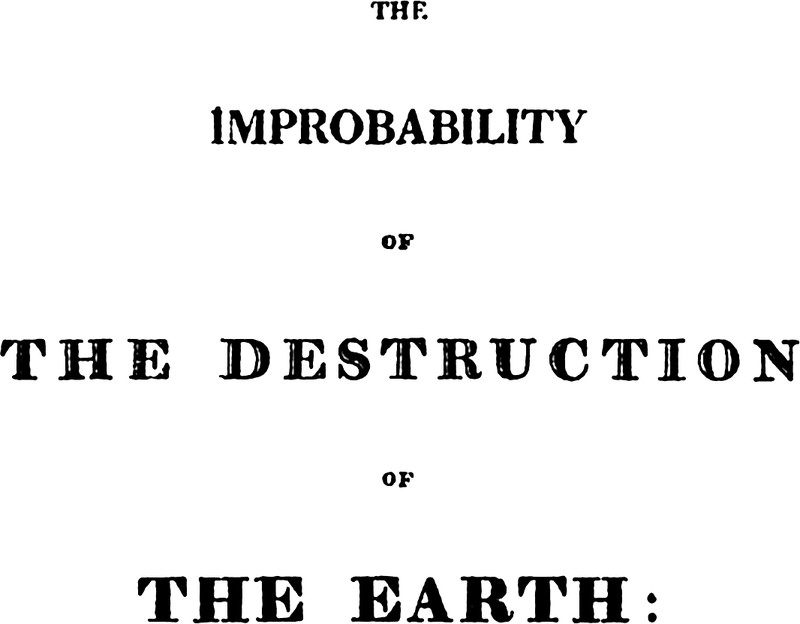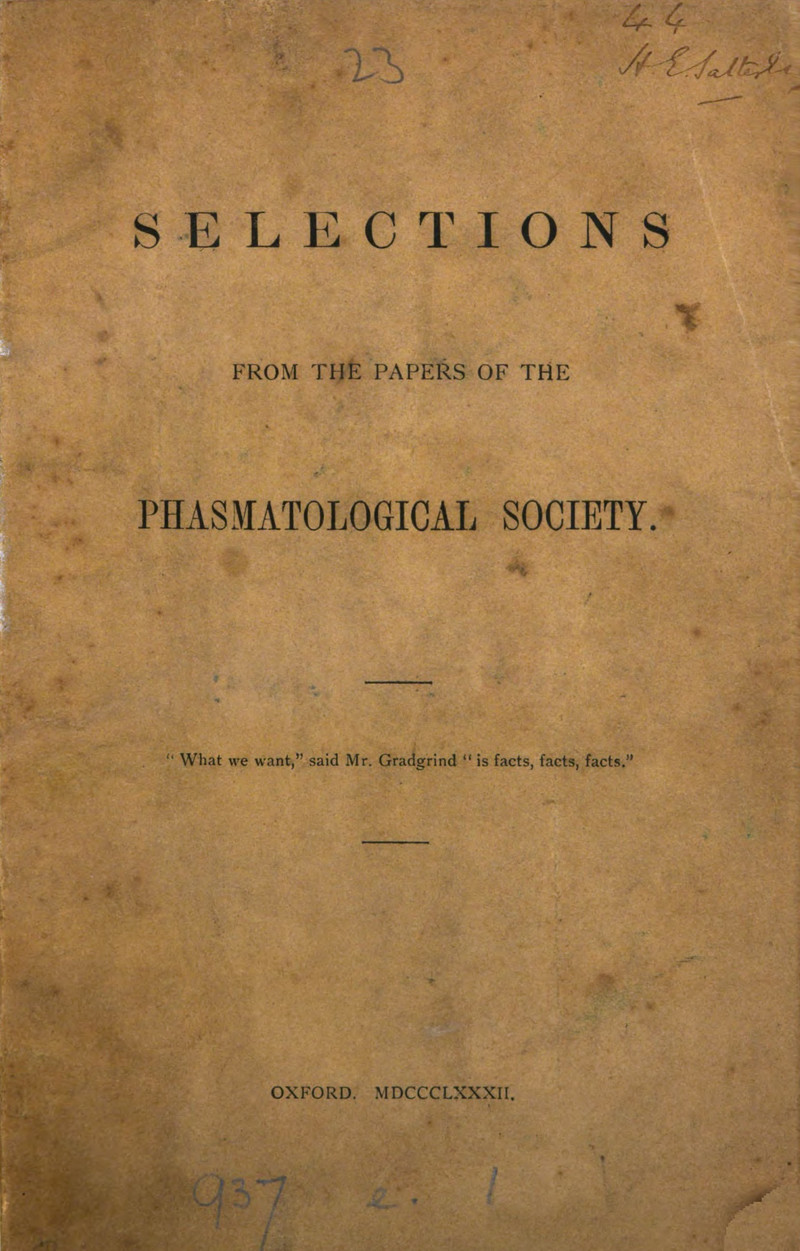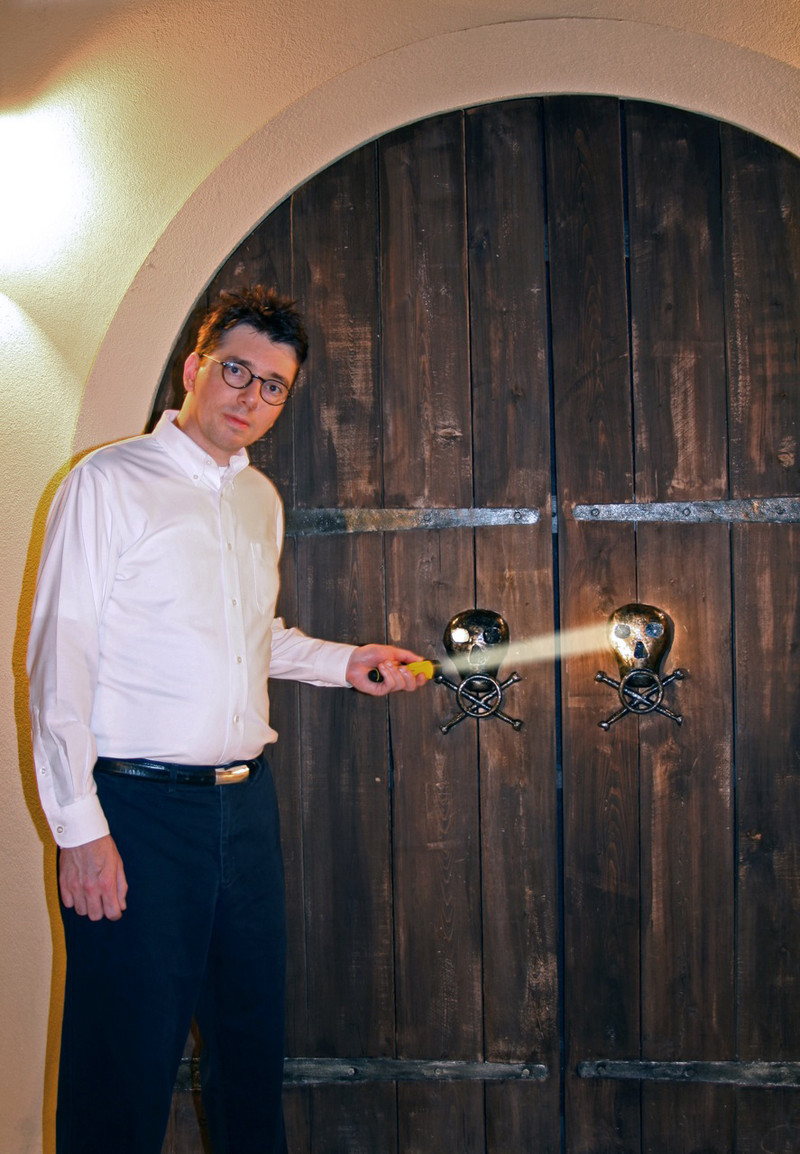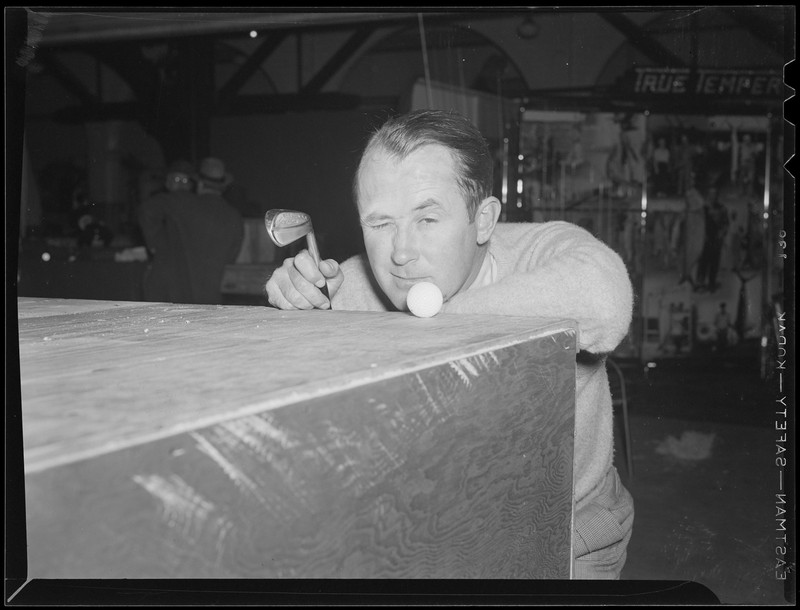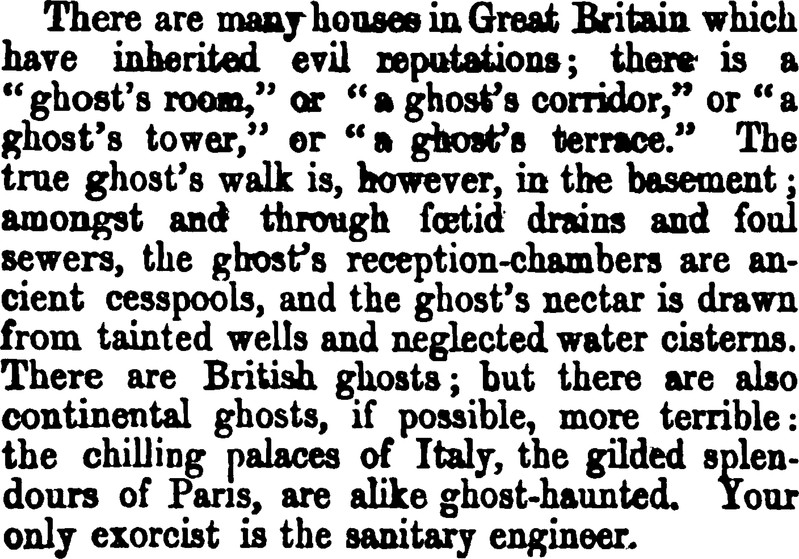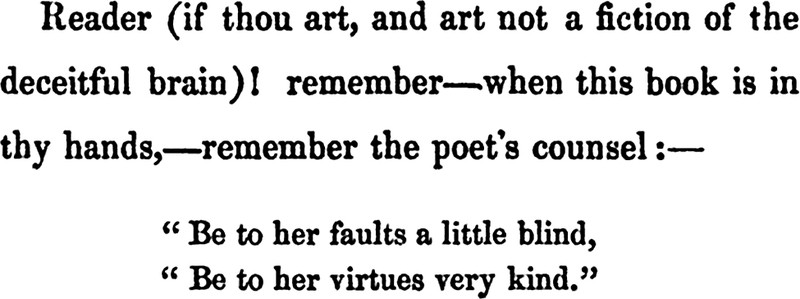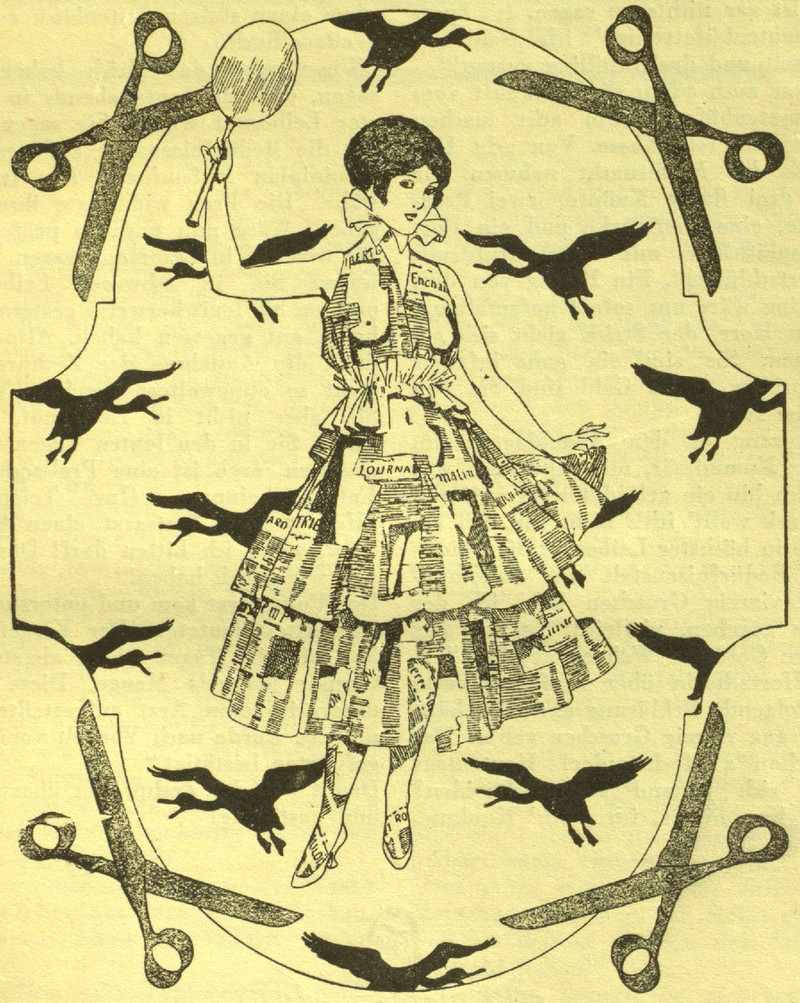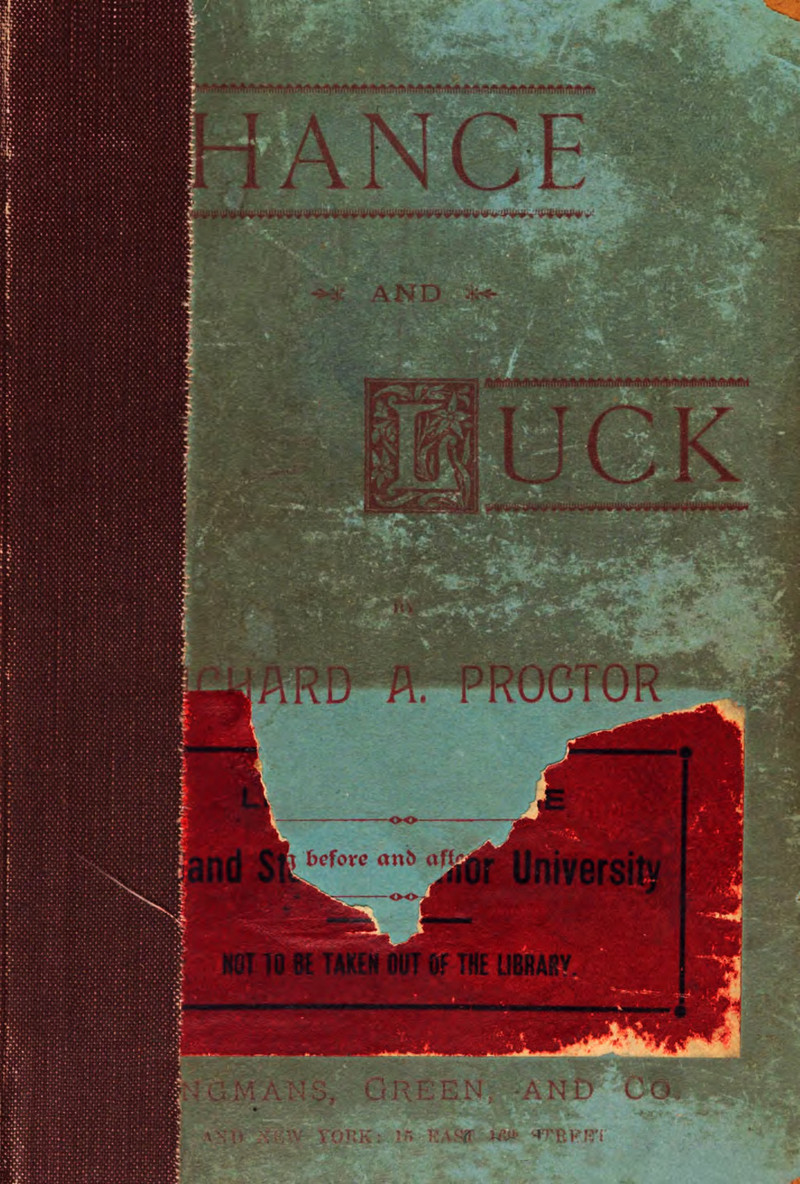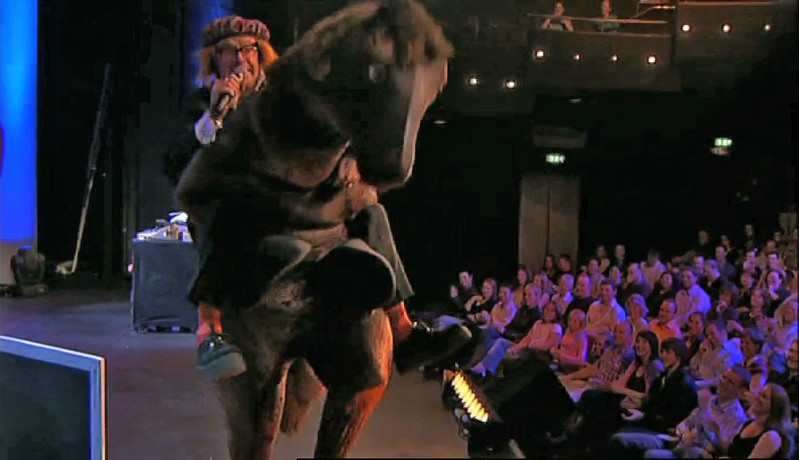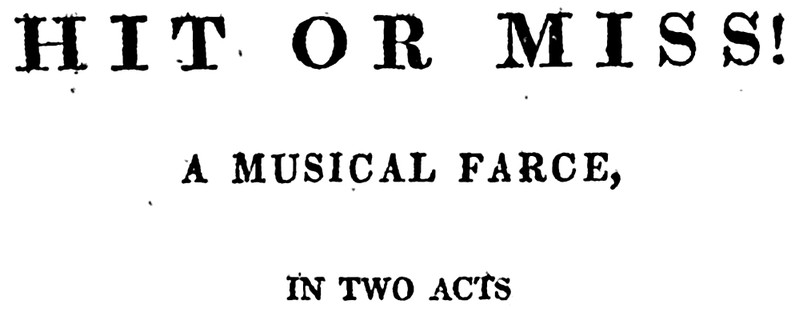I Found a Penny Today, So Here’s a Thought
|
|
|
 |
 |
 |
It's all in a day's work around here: "There were abstract equations to be worked out; difficult analyses to be made; mystical keys to be fitted to still more mystical complications; and the whole so blended and woven together, that the loss of a single link of the marvellous chain would destoy all hope of ever attaining the wished-for result." From Leonard Kip's "The Secret of Apollonius Septrio," Hannibal's Man and Other Tales, 1878.
|

 |
|
|
 |
 |
 |
M. asked us, "How can one become physically beautiful at least for a brief moment before death." We find our four-pronged answer in E. N. Kirk's "How to Become Beautiful" (1846).
M. replied, "You did it! Great answer. You're some sort of magician with magic scrolls. Thank you beautiful wiz!"
|


 |
|
|
 |
 |
 |
"I did not say it was possible; I only said it was true." —Dumas, or Sir Astley Cooper, or "the Fool in the play," or a character in The Castle Spectre, or [in actuality] Florent Carton Dancourt, Le Chevalier à La Mode, 1687 (as popularly translated into English).
|



 |
|
|
 |
 |
 |
Even if the Loch Ness Monster is an automaton, as Ure's Dictionary of 1846 suggests, "Does it then follow that the automaton possesses a freedom of action, a freedom of will? Yes, we should think that it has a certain freedom of action (the freedom of will we had better leave aside because here the analogy is doubtful at present)" (I. G. Makarov, Cybernetics Today, 1984).
|


 |
|
|
 |
 |
 |
Can you make out the Dickens quotation that serves as the motto? There was a time when even so-called pseudo-science sought nothing but "facts, facts, facts." Today, we're hard pressed to name any institution that could in good faith adopt such a motto. The media? Political pollsters? Climatologists? Any other white-coat wearer of what Robert Anton Wilson dubbed the New Inquisition? Selections from the Papers of the Phasmatological Society, 1882.
|

 |
|
|
 |
 |
 |
If there's a skull lock and you forgot your skeleton key, try working a beam of light into the mechanism. Recall how "She springs a light, / Unlocks the door" (Dryden). Similarly, " Morning with its key of light / Unlocks the dusky p ortals of the night" ( Albert Laighton, Poems, 1878). And "My light unlocks the stalls, / two doz en and one windows open— / all, except the window of the moon, / already painted on as shining" (Jane Shore, Eye Level, 1977).
|



 |
|
|
 |
 |
 |
Here we learn where a ghost's true reception chamber is, where a ghost draws its nectar, as well as why a sanitary engineer is your only exorcist: "There are many houses in Great Britain which have inherited evil reputations; there is a 'ghost's room,' or 'a ghost's corridor,' or 'a ghost's tower,' or 'a ghost's terrace.' The true ghost's walk is, however, in the basement; amongst and through foetid drains and foul sewers, the ghost's reception-chambers are ancient cesspools, and the ghost's nectar is drawn from tainted wells and neglected water cicterns. There are British ghosts; but there are also continental ghosts, if possible, more terrible: the chilling palaces of Italy, the gilded splendours of Paris, are alike ghost-haunted. Your only exorcist is the sanitary engineer." From All the Year Round, 1861.
|


 |
|
|
 |
 |
 |
The anonymous author of Whose Poems? (1850) asks his possibly phantasmagorical reader to be kind. He would have benefitted from How to Believe in Your Elf.
|

 |
Given the "fake news" controversies, how can one tell if a newspaper dress is a designer imposter? From Mocca, 1932.
|


 |
|
|
 |
 |
 |
Comedian Harry Hill weaves his live shows out of a seeming confetti of disparate threads, charming his audiences with unexpected callbacks to various themes, often offering surprise zingers to subtle set-ups that were funny enough in themselves before he seemingly left them along the way. Initially, one might guess that Hill writes the sentences of his various comedic anecdotes and storylines onto cards and then shuffles them up to create a random mosaic, but we suggest that his technique is better described by a wholly different game: chess. A chess game progresses as many very different pieces move in carefully calculated turns, some incrementally, some zigging and zagging and even changing direction. But here's the real twist: Hill's comedic chess game is played in reverse. He begins with his checkmate move, hooking the audience from the very get-go, and only when the show is complete does the grand arrangement of Hill's material reveal itself. In the show "Harry Hill in Hooves" (2005), it's the knight piece that wins the game, as revealed when Harry makes his grand entrance by riding piggyback on someone in a funny horse costume. (This entrance is actually a subtle visual joke in itself, as Hill often wears costumes that give the illusion of someone riding a beast, in which the animal's legs are in fact the performer's. Here, he surprises the audience by leaping off the horse and proving that his own legs were not in fact the horse's.) Hill's scripts, by design, are not decodable as highly structured until the very end, when the many pieces of his game board finally line up in the audience's minds, ready to be played forward in memory.
|



Page 134 of 170

> Older Entries...

Original Content Copyright © 2025 by Craig Conley. All rights reserved.
|



